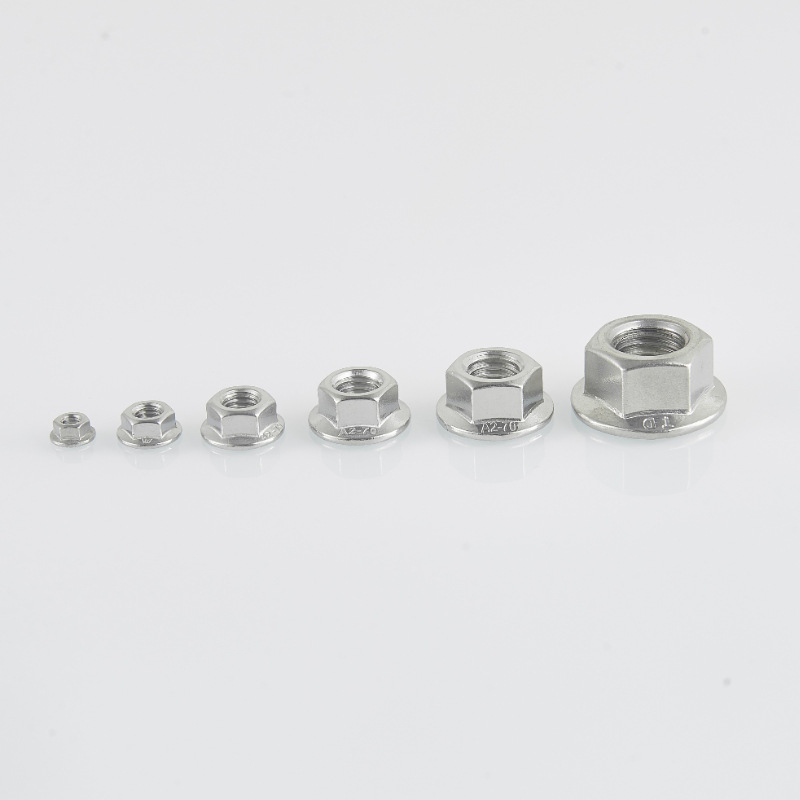

M16 Nylon Washers for Enhanced Durability and Performance in Various Applications
Dec . 23, 2024 09:31 Back to list
M16 Nylon Washers for Enhanced Durability and Performance in Various Applications
The Versatile Application of M16 Nylon Washers A Comprehensive Overview
Nylon washers, particularly those sized M16, are essential components in various industries and applications. Their unique properties make them highly valuable in settings ranging from automotive manufacturing to construction and electronics. This article delves into the characteristics, benefits, and applications of M16 nylon washers, highlighting their significance in modern assembly practices.
Understanding M16 Nylon Washers
M16 nylon washers are circular discs made from nylon, a strong and flexible synthetic polymer. The M16 designation refers to the washer's inner diameter, which is designed to fit M16 bolts, corresponding to a nominal diameter of approximately 16 mm. Additionally, these washers come in various thicknesses and outer diameters, making them suitable for numerous fastening applications.
Key Properties
1. Corrosion Resistance One of the most notable advantages of nylon is its innate resistance to corrosion. Unlike metal washers that can rust or degrade in harsh environments, nylon washers maintain their integrity over time. This resistance makes them ideal for outdoor applications or in areas exposed to moisture.
2. Electrical Insulation Nylon is a good insulator, which means M16 nylon washers can prevent electrical conduction in certain applications. This property makes them particularly useful in electronic assemblies where electrical isolation is crucial.
3. Lightweight Nature Nylon washers are significantly lighter than their metal counterparts. This characteristic is particularly beneficial in applications where reducing weight is essential, such as in automotive or aerospace manufacturing.
4. Vibration Damping These washers can absorb and dampen vibrations, which helps to maintain the integrity of connections in machinery and vehicles. By preventing loosening over time, nylon washers contribute to the overall safety and longevity of assembly.
5. Chemical Resistance Nylon washers perform well in many chemical environments, resisting degradation from oils, solvents, and other corrosive substances. This property allows them to be used across various industries, including chemical processing.
m16 nylon washers

Applications of M16 Nylon Washers
M16 nylon washers find applications across a diverse range of fields
1. Automotive Industry In vehicles, M16 nylon washers are commonly used in engine assemblies, where they can help protect sensitive components from corrosion and vibration-induced wear. Their ability to withstand harsh environments makes them a popular choice for automotive manufacturers.
2. Construction In construction applications, these washers are often used to secure bolts in structural components, ensuring durability and stability while preventing metal-to-metal contact that can lead to wear and tear over time.
3. Electronics In the electronics sector, M16 nylon washers are essential for insulating and securing circuit boards and other components. They help prevent short circuits and other electrical issues, thereby enhancing the reliability of electronic devices.
4. Aerospace The aerospace industry requires components that can withstand extreme conditions while remaining lightweight. M16 nylon washers meet these demands, making them suitable for various aircraft assembly applications.
5. Home Appliances These washers can also be found in household appliances, where they serve to prevent leaks and secure connections, ensuring efficient operation and longevity of devices.
Conclusion
M16 nylon washers are indispensable components in a variety of applications due to their unique properties, including corrosion resistance, electrical insulation, and lightweight nature. As industries continue to evolve, the demand for reliable, durable, and efficient components like M16 nylon washers will only grow. Their versatility and effectiveness make them a preferred choice for engineers and manufacturers alike, cementing their place as a critical element in modern assembly practices. As technology advances, these washers will undoubtedly continue to play a significant role in enhancing the performance and lifespan of engineered products across multiple sectors.
Latest news
-
Hot Dip Galvanized Bolts-About LongZe|High Strength, Corrosion Resistance
NewsJul.30,2025
-
High-Strength Hot Dip Galvanized Bolts - Hebei Longze | Corrosion Resistance, Customization
NewsJul.30,2025
-
Hot Dip Galvanized Bolts-Hebei Longze|Corrosion Resistance&High Strength
NewsJul.30,2025
-
High-Strength Hot-Dip Galvanized Bolts-Hebei Longze|Corrosion Resistance&High Strength
NewsJul.30,2025
-
Hot Dip Galvanized Bolts-Hebei Longze|Corrosion Resistance&High Strength
NewsJul.30,2025
-
Hot Dip Galvanized Bolts - Hebei Longze | Corrosion Resistance, High Strength
NewsJul.30,2025

